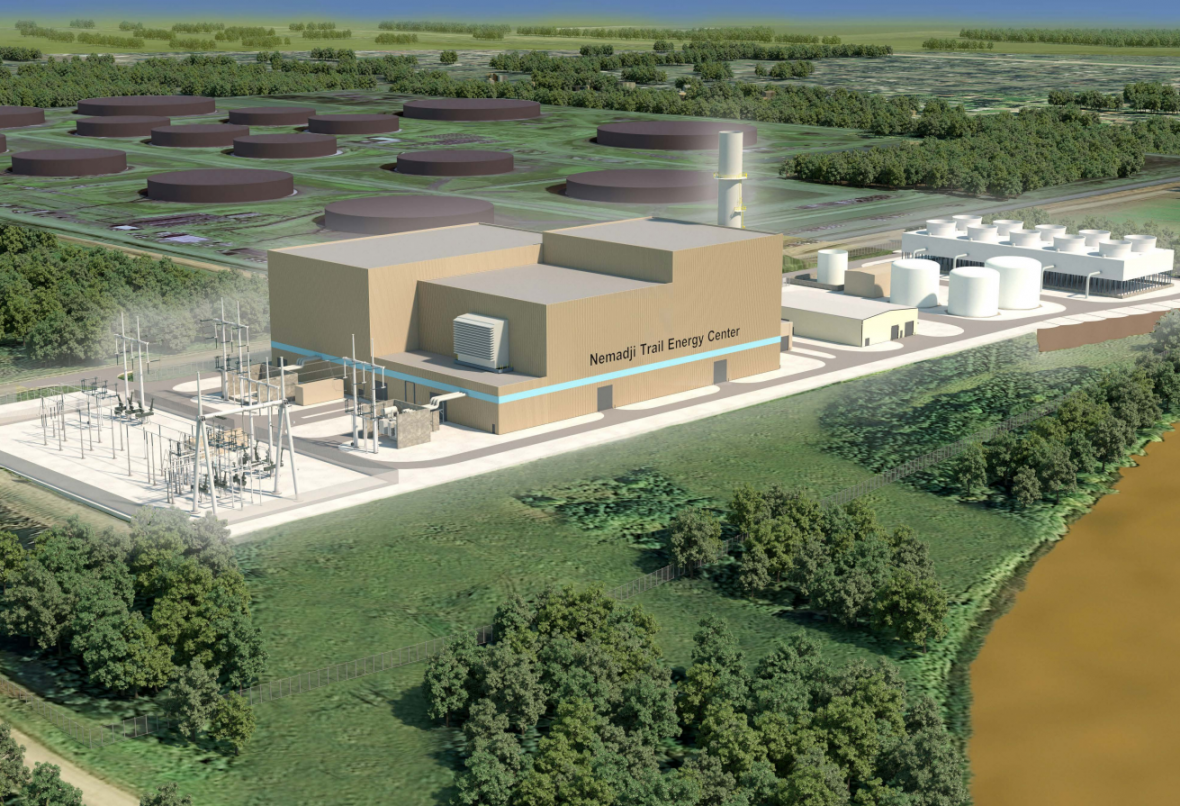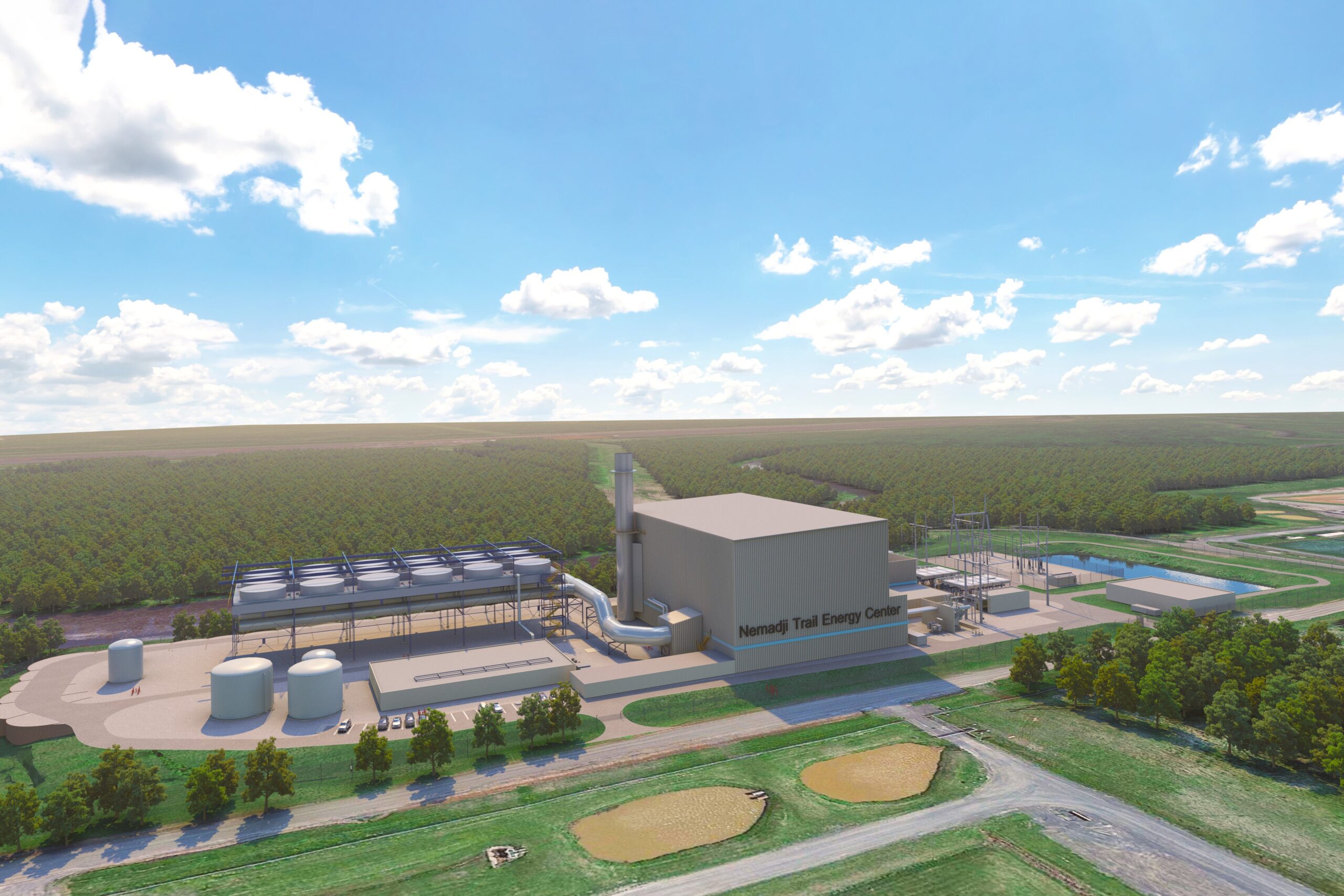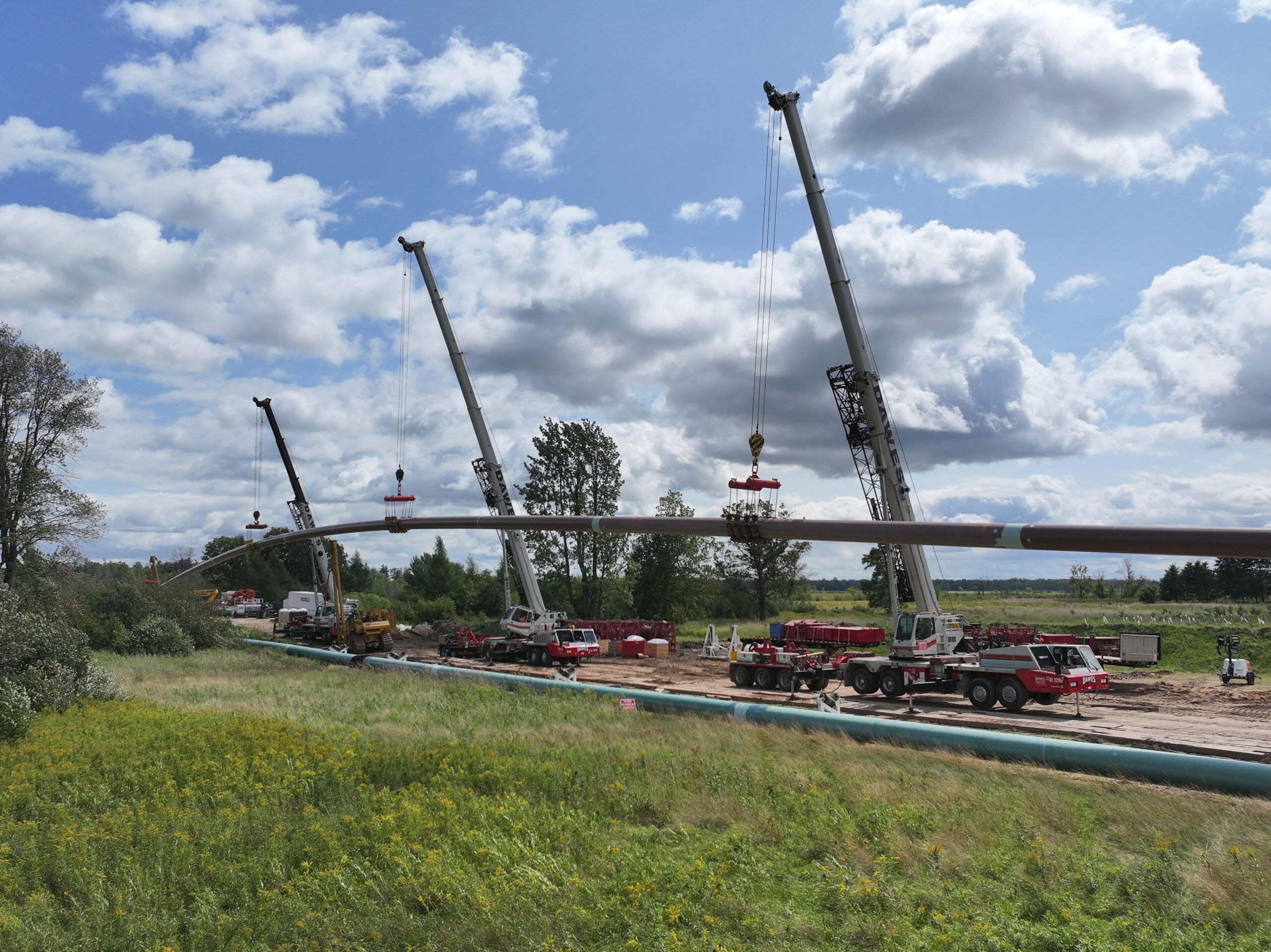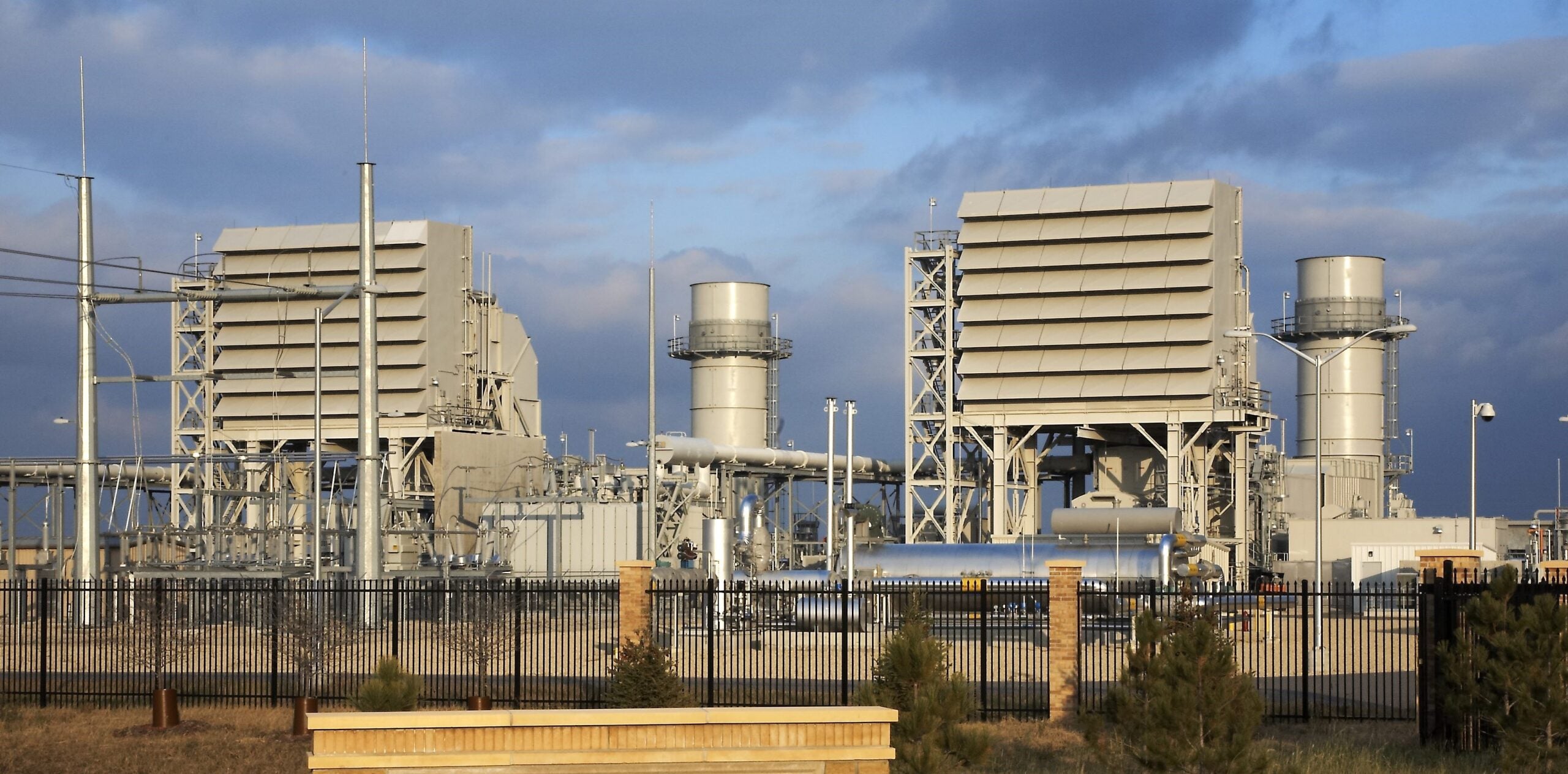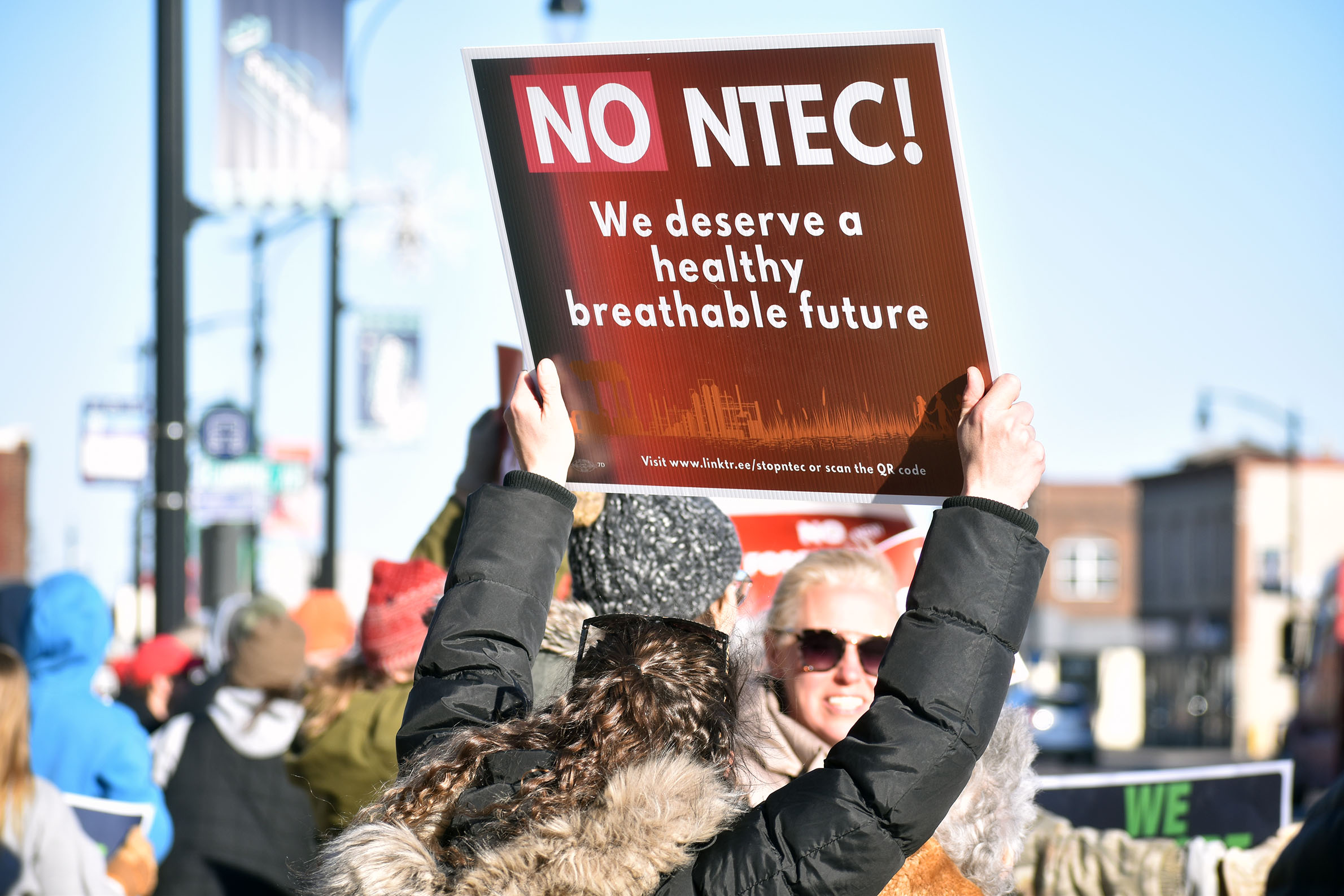Members of the Twin Ports community and surrounding region weighed in on plans to build a $700 million natural gas plant in Superior on Monday night.
Supporters say the project will provide a cleaner, more reliable source of power as part of a transition to renewable energy. Yet, opponents say the facility contributes to fossil fuel emissions at a time when scientists are sounding the alarm on climate change.
La Crosse-based Dairyland Power Cooperative and Minnesota Power submitted an application with regulators earlier this year to build the Nemadji Trail Energy Center in Superior. The plant would provide as much as 625 megawatts of power when the utility providers are unable to draw from renewable sources like wind and solar, which the utilities say is enough to power 166,000 homes.
News with a little more humanity
WPR’s “Wisconsin Today” newsletter keeps you connected to the state you love without feeling overwhelmed. No paywall. No agenda. No corporate filter.
The project has received widespread support from local leaders, business and labor groups, including Kyle Bukovich, president of the Northern Wisconsin Building and Construction Trades Council.
“This project is a crucial step forward in reducing carbon emissions while providing a reliable backup source when the wind doesn’t blow and the sun doesn’t shine,” said Bukovich.
Workers and business groups also highlighted the 260 jobs that would be created during construction, including Todd Rothe, president of J.R. Jensen Construction Company in Superior.
“The fact is we rely on and support projects, such as the Nemadji Trail Energy Center, to remain employed and to earn a decent living here,” said Rothe.
Local officials also cited the plant’s projected $1 million annual impact on the community, including Taylor Pedersen, president and chief executive officer of the Superior-Douglas County Chamber of Commerce.
“The region needs this project to continue and improve the positive impact these companies will have on our community,” he said.
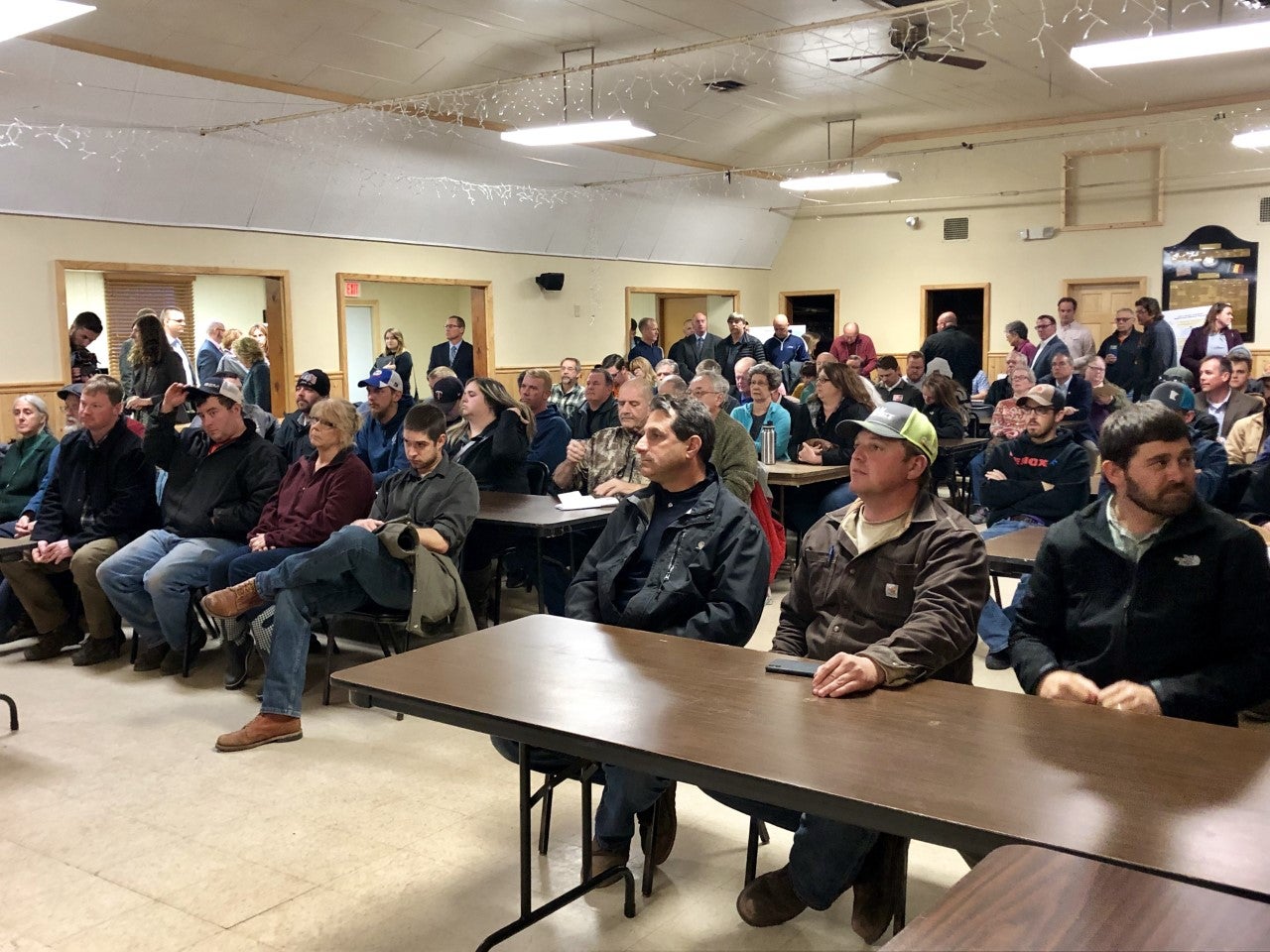
Yet, others feel the natural gas plant would do more harm than good. Community members and environmental groups gathered before the hearing to voice their opposition to the project, including Bridget Jones, pastor of Bethel Lutheran Church in Superior.
“Natural gas is not a clean fuel. It causes harm to humans, animals, plants, water, earth and air near the fracking site. It causes harm as it transported,” said Jones. “It has the potential to cause incredible harm in Superior where it is burned, and it will contribute to climate change.”
Twin Ports youth also expressed their concerns that the project would contribute to climate change and disproportionately impact marginalized groups, including indigenous cultures, people of color and those living with disabilities.
“Giving Minnesota (sic) Power the permission to establish this natural gas plant in Superior would be a terrible mistake that would have a variety of consequences, which would all be detrimental to the planet and its people,” said Elizabeth Evans, a senior at Superior High School.
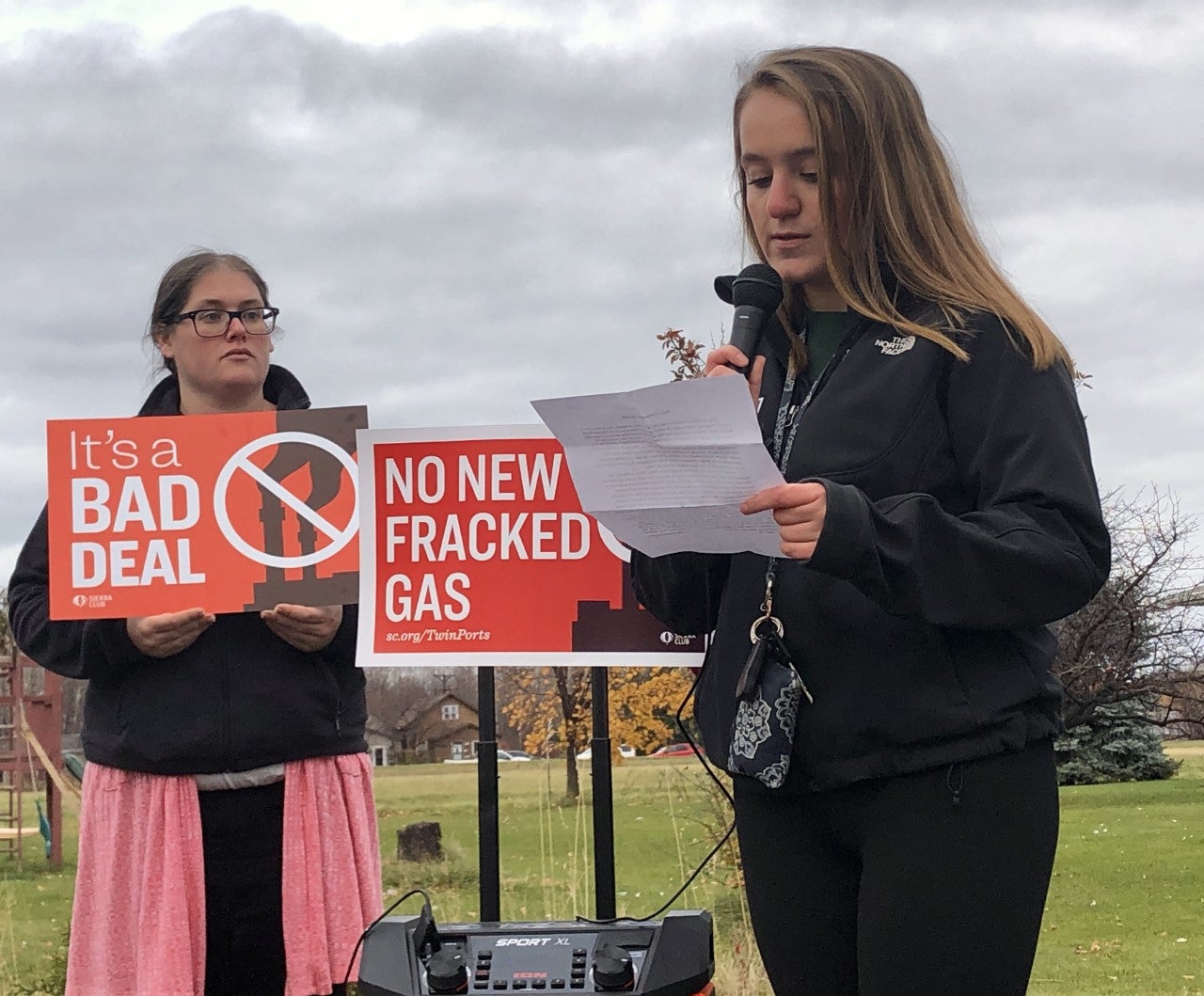
Oliver Redsten with environmental group Clean Wisconsin also expressed concerns over the power plant’s location near the Nemadji River. He highlighted the area’s potential for erosion could undermine the facility and increase the risk of failure.
“In this case, an accident would lead to devastating consequences not only for the Nemadji River but also Lake Superior,” said Redsten.
Clean Wisconsin and the Red Cliff Band of Lake Superior Chippewa have also pointed to severe flooding in the region, as well as potential impacts the project may have on water. State regulators have said they don’t believe there’s an adequate supply of groundwater at the site to meet the facility’s needs.
Rob Palmberg, vice president of strategic planning with Dairyland Power Cooperative, said they’re continuing to work with the Wisconsin Department of Natural Resources to update information on the project site.
“We’re confident that we’re going to get through that,” said Palmberg.
The two utility providers are diversifying energy sources to meet demand. Minnesota Power has set a goal to provide 50 percent of its power from renewable resources by 2021. Dairyland Power has set a goal to provide around 30 percent from renewable sources by 2030.
Dairyland Power operates three coal-fired power plants with no plans to shutter any facilities at this time. Meanwhile, Minnesota Power has already shut down seven out of nine of its coal-fired power plants as it shifts to more renewable sources, according to Julie Pierce, the utility’s vice president of strategy and planning.
“A natural gas facility like the Nemadji Trail Energy Center is an important part of transforming the energy system,” said Pierce. “It’s a new modern technology that has the flexibility to allow additional renewables on the system.”
The utility providers still need to secure additional local, state and federal permits for the project, which is also facing a legal challenge from environmental groups in Minnesota. Both Minnesota and Dairyland Power hope to see the plant up and running by 2025.
Wisconsin Public Radio, © Copyright 2025, Board of Regents of the University of Wisconsin System and Wisconsin Educational Communications Board.

